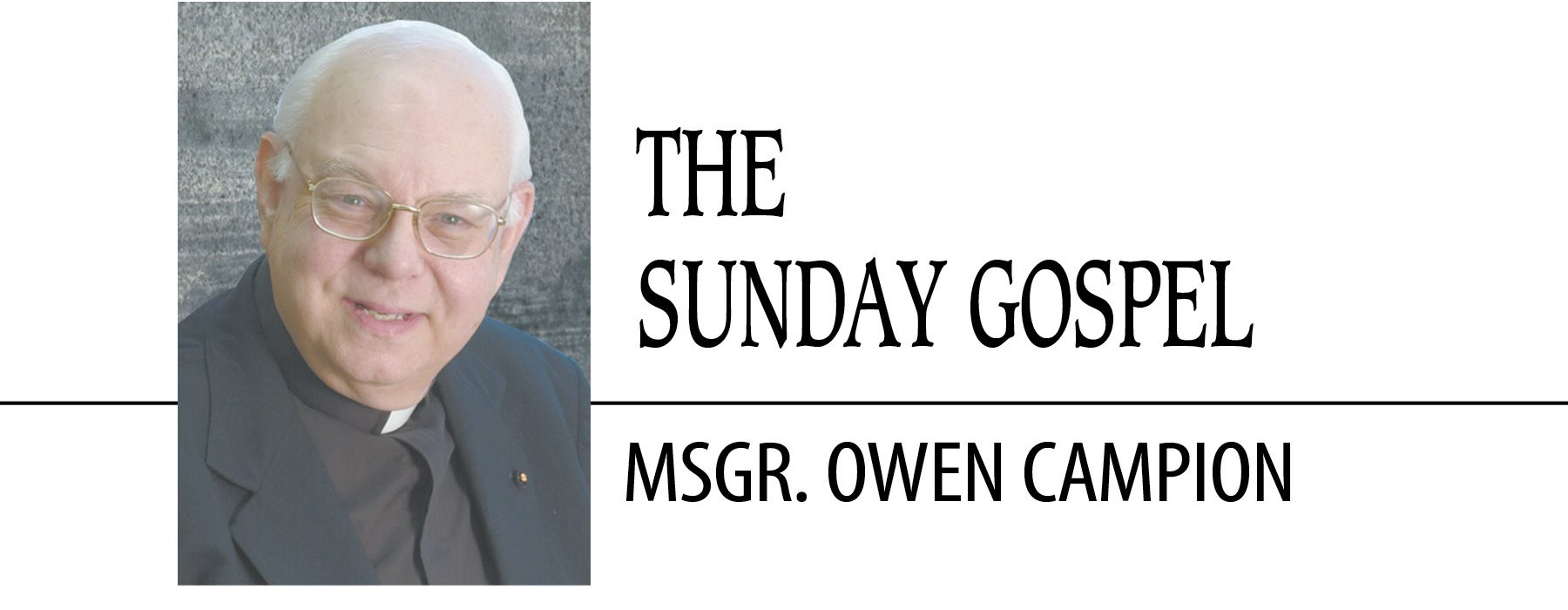July 2, 2022 // Perspective
God is the source of strength and hope for His people
Fourteenth Sunday in Ordinary Time
Luke 10:1-12, 17-20
The Book of Isaiah is the source of the first reading. In reading the Book of Isaiah, as in reading any Scripture, it is important to take note of the context in which the work originally was composed. The events, attitudes and personalities within these contexts in very significant measure influenced what actually was written. The Bible is inspired by the Holy Spirit, but its various individual authors addressed human concerns, conditions of their own times and had their contemporaries in mind.
When this third part of Isaiah was written, God’s chosen people were not living a life of ease and plenty. Their kingdoms had been destroyed. They had survived exile in Babylon. Somehow, given how arduous a trip on foot across the desert that is now Iraq, Jordan and Syria was, they had managed to return home. What they found was not a great relief. They struggled.
The prophets, such as the author of the third section of Isaiah, reassured them. God would protect them. He had promised to protect them. They would not die. If they were true to God, they would live. God would give them life.
For its second reading, the liturgy for this weekend gives us a passage from the Epistle to the Galatians.
Galatians is a virtual treasure trove of deep and compelling revelation into the reality of salvation. Salvation is in and because of Jesus. Christians achieve salvation by their bond with Jesus, the Savior.
Thus, this reading calls upon Christians to rejoice in the fact that salvation is within their grasp. It tells believers to boast of nothing except that they have been redeemed by the cross of Christ. It also reminds them forcefully that they must tie themselves to the redemption won by Jesus in the sacrificial crucifixion. They must crucify their own instincts and sins and live in the model of the Lord.
The reading says that no one is excluded from God’s plan for human salvation, but each person voluntarily must ratify a personal place in this plan by turning to God humbly and without qualification.
St. Luke’s Gospel furnishes the last reading. It is a story about the Lord’s commissioning of seventy-two disciples, whom Jesus sent to prepare for the spread of the Gospel.
Important to the story is the fact that the Lord methodically and carefully instructed these disciples in what they should do as they fulfilled the commission given them. They did not just simply go out on their own.
Equally important is the fact that Jesus empowered them to rid the places that they would visit of evil. Demolishing evil is an ability belonging only to God. The Lord gave them this ability.
He also promised them that they themselves would not succumb to whatever destructive forces evil may rise against them.
Reflection
The mindset prevailing in our culture is curious realizing the modern achievements in science. We can control many things and being in control is an ideal, but our culture broadcasts the notion that we cannot withstand sin, nor should we. Humans must surrender to instincts and selfishness.
Then, in a twist, the culture bids us to overestimate ourselves, suggesting to us that we are much wiser than we are. True, much is known today, but much is unknown, and we still are subject to hurt and to death.
These readings tell us that eternal life and peace and joy in this life are the products of salvation in God, awaiting us in Jesus.
The love of God in Jesus is our strength and hope, given to us by Jesus. He gives us special teachers and leaders in the Church to guide us. They have the power, conferred by God, to lead us to true and everlasting life.
The best news. Delivered to your inbox.
Subscribe to our mailing list today.






